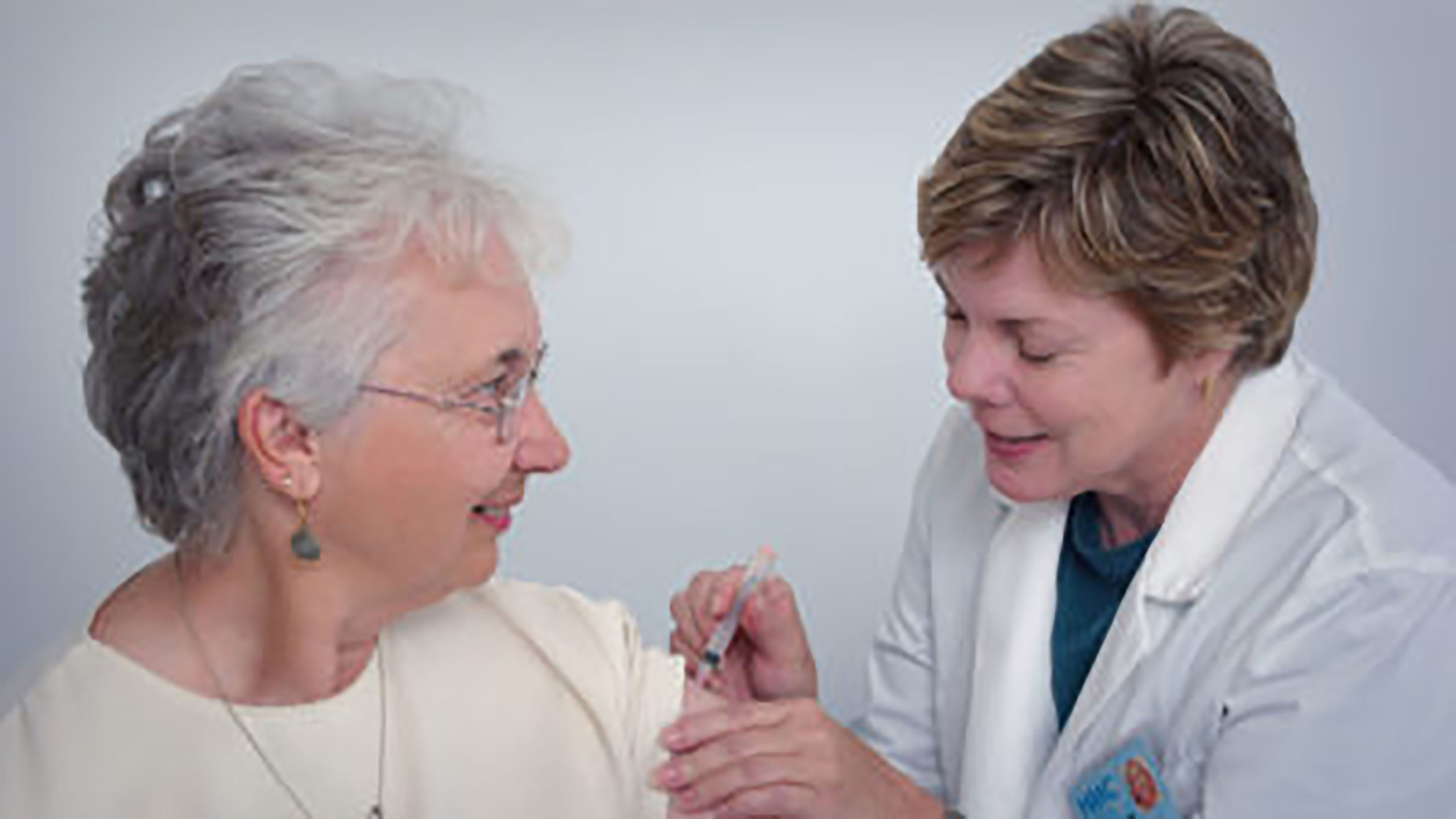In the United States today, some 53 million Americans are providing unpaid health care for someone who is sick, elderly and/or disabled, or who suffers from Alzheimer’s disease, dementia, cancer, etc. Caregiving often involves exhausting responsibilities; long, difficult hours; backbreaking physical work; and heavy emotional burdens.
Each year as a nation we honor caregivers — one out of every five Americans — during November’s National Caregiver Month.
With such demanding workloads, today’s full-time caregivers are themselves becoming sick and disabled, often requiring their own care. They are more likely than non-caregivers to develop physical disorders such as diabetes and high blood pressure, and are at a higher risk for the disorders of aging, such as Alzheimer’s, dementias, mental disorders, depression or anxiety.
Fallout from COVID-19
Often caregivers have less time and energy to take care of their own health because they are pouring so much into caring for someone else. The COVID-19 virus has made the work much more difficult, increasing the number of those who need care.
Some provide complex, chronic care, performing nursing and medical tasks for which they may not have training, knowledge or physical strength, such as:
- lifting patients in and out of beds and/or chairs
- assisting with toileting and bathing
- dressing and undressing
- applying and giving medication
- providing wound care and bandaging
- helping with exercise and physical therapy
Caregivers can often feel forgotten, becoming so overwhelmed with other responsibilities they are unable to attend church, eat lunch with friends or other activities they once enjoyed. Isolation from family, friends and fellow church members can cause depression, sadness and loneliness.
A long-term caregiver recently admitted: “I have personally yearned for a member of my church to knock on my door and offer help — practical help, a guide to resources or even to just visit and pray with me. I think I would burst into tears, give her a big hug, thank her from the bottom of my heart and beg her to come inside.
“If she made a way to help me attend church, I would never miss a service. I love and miss attending church. Some friends came alongside to help me at first, but as time passed they stopped coming as often — or at all.
“I feel forgotten, invisible to society.”
How can the church help caregivers?
The pastor, staff and members can encourage, pray for and provide emotional support and practical help for today’s caregivers in a number of ways, including:
- Contact those in your church and community, thanking them for their faithful service, encouraging them in their difficult roles and asking how the church can help them in practical ways.
- Pray for caregivers, letting them know you are praying. Ask how you can pray for them, what their greatest needs are and if you can pray with them via Facetime or phone. Let them know they are not isolated and alone, that the church loves them, prays for them and cares about them.
Help in practical ways:
- Take a healthy meal — either homecooked or from a favorite restaurant, delivered to their home.
- Offer times of retreat, if only for an hour, a Sunday morning or a weekday afternoon. Stay with their loved one, allowing the caregiver to attend worship, have lunch with a friend or just rest.
- Offer to run errands, picking up medical supplies, prescriptions, groceries, etc.
- Send regular notes and cards, emails or texts to remind them they are loved and remembered. Call, asking if they are able to talk a few minutes, being careful not to interfere with their duties.
- Offer to accompany and/or drive caregivers and/or their loved ones to doctor appointments, dentist visits, physical therapy, etc.
- Research and share resources, helping them understand medical procedures, prescription doses or other issues. Put them in touch with local agencies, community support groups, house-cleaning services, meal programs, hospice, psychologists, therapists, others who can help navigate their tasks.
- Enlist professionals in your church to assist with legal advice, financial issues, the need to understand governmental matters or other business concerns. Ask the professional — lawyer, doctor, social worker, financial advisor — to personally walk with them through difficult processes and complicated problems.
- Identify the caregivers in your congregation and community, and begin a support group that meets regularly to help and encourage them.
- Walk beside them with love, concern and presence when they face a loved one’s fatal diagnosis or death. Help with funeral arrangements, will-readings and end-of-life requirements. Stay close, praying with them as they grieve their loss. As a church, gather around them, showing them love, concern and hands-on, practical ministry.
- Help caregivers when their loved one dies and they are ready to return to church, welcoming them to new Bible study classes, sitting with them during the service, making them feel comfortable and an important part of the church.
The church can show Christ’s love to those who care for others, who give their time and energy to someone who needs help. What we do for caregivers today, we also do for ourselves and our own loved ones — for caregiving is a fact of life, one that involves every human being.
As former First Lady Rosalynn Carter once said: “There are four types of people in this world: Those who have been caregivers; those who are currently caregivers; those who will be caregivers, and those who will need a caregiver.”
Helpful Resources for Caregivers
Alzheimer’s Association: 800-272-3900
National Institute on Aging: 800-222-2225
ACL Dementia Fact Sheet: 800-677-1116
Eldercare Locator: 800-677-1116
LongTermCare.gov: 202-401-4634
American Cancer Society: 800-227-2345
Cancer Hope Network: 877-467-3638
Cancer Legal Resource Center: 866-843-2572
AARP Family Caregiving: 877-333-5885
Family Caregiver Alliance/National Center on Caregiving: 800-445-8106
National Alliance for Caregiving: 202-918-1013
National Hospice and Palliative Care Organization: 703-837-1500
Hospice Foundation of America: 800-854-3402
National Institute on Aging: 800-222-2225
Adult Children of Aging Parents: 877-599-2227
Veteran Affairs Caregiving Support Program: 855-260-3274






Share with others: